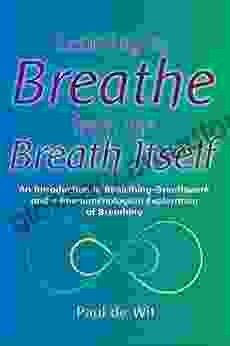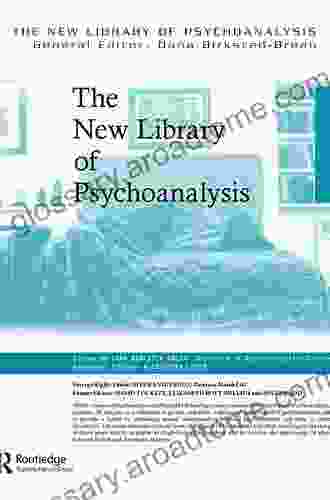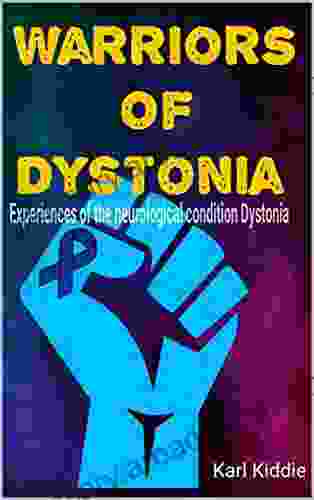The Use and Abuse of History: Unraveling the Complexities and Shaping Our Understanding

Delving into the Labyrinth of Historical Narrative

History, a chronicle of human experiences, events, and ideas, serves as a mirror reflecting our collective past. It shapes our present understanding and influences our vision of the future. However, the interpretation and use of history are not without their complexities and potential pitfalls.
5 out of 5
| Language | : | English |
| File size | : | 7397 KB |
| Text-to-Speech | : | Enabled |
| Enhanced typesetting | : | Enabled |
| Print length | : | 241 pages |
| Screen Reader | : | Supported |
In his seminal work, "The Use and Abuse of History," eminent historian J.H. Plumb embarks on a profound exploration of the multifaceted relationship between history and human society. Plumb delves into the ways in which history is used and abused, highlighting the profound implications for our collective consciousness and identity.
Historical Interpretation: A Prism of Perspectives

History, as Plumb argues, is not a neutral or objective record of the past. It is, in essence, a tapestry woven from the threads of interpretation and perspective. The historian, acting as a curator of the past, selects, shapes, and presents historical events through the lens of their own biases, assumptions, and values.
This inherent subjectivity in historical interpretation opens up a vast arena for potential distortions, omissions, and manipulations. Plumb examines the ways in which history has been used as a tool for justifying power structures, suppressing dissent, and fostering nationalistic sentiments.
History's Influence on Identity and Power

Plumb underscores the profound influence of history on our sense of identity and our perceptions of power. He argues that history provides a narrative framework through which we shape and understand our place in the world. By selectively emphasizing certain historical events and downplaying others, societies can craft narratives that reinforce their own power structures and legitimize their actions.
The abuse of history for such purposes can have devastating consequences, leading to the suppression of minority voices, the justification of oppression, and the distortion of our collective memory. Plumb's analysis exposes the ways in which history is often shaped to serve the interests of the powerful, rather than to provide a genuine and unbiased account of the past.
Towards a Responsible Use of History

Recognizing the potential for misuse and manipulation, Plumb advocates for a responsible and critical approach to history. He emphasizes the importance of examining multiple perspectives, questioning accepted narratives, and seeking out marginalized voices.
By engaging with history in a thoughtful and informed manner, we can break free from the confines of biased interpretations and uncover the complexity and richness of our shared past. Plumb's work serves as a powerful reminder that history is not a static or fixed entity, but a dynamic and evolving field of inquiry.
As we navigate the challenges of a rapidly changing world, the lessons we learn from history can provide invaluable guidance. However, it is essential that we approach history with a critical eye, recognizing its potential for both enlightenment and deception.
: Embracing the Complexity of the Past
J.H. Plumb's "The Use and Abuse of History" stands as a timeless and essential contribution to our understanding of history and its profound impact on human affairs. Plumb's insights challenge us to view history not as a simplistic record of the past but as a complex and often contested terrain.
By unraveling the intricate relationship between history and power, Plumb empowers us to recognize the ways in which history can be used and abused. Armed with this knowledge, we can strive towards a more responsible and critical use of history, one that fosters understanding, empathy, and a deeper appreciation for the complexities of the human experience.
5 out of 5
| Language | : | English |
| File size | : | 7397 KB |
| Text-to-Speech | : | Enabled |
| Enhanced typesetting | : | Enabled |
| Print length | : | 241 pages |
| Screen Reader | : | Supported |
Do you want to contribute by writing guest posts on this blog?
Please contact us and send us a resume of previous articles that you have written.
 Book
Book Novel
Novel Page
Page Chapter
Chapter Text
Text Story
Story Genre
Genre Reader
Reader Library
Library Paperback
Paperback E-book
E-book Magazine
Magazine Newspaper
Newspaper Paragraph
Paragraph Sentence
Sentence Bookmark
Bookmark Shelf
Shelf Glossary
Glossary Bibliography
Bibliography Foreword
Foreword Preface
Preface Synopsis
Synopsis Annotation
Annotation Footnote
Footnote Manuscript
Manuscript Scroll
Scroll Codex
Codex Tome
Tome Bestseller
Bestseller Classics
Classics Library card
Library card Narrative
Narrative Biography
Biography Autobiography
Autobiography Memoir
Memoir Reference
Reference Encyclopedia
Encyclopedia Umar Zakir Abdul Hamid
Umar Zakir Abdul Hamid Gail Mooney
Gail Mooney History Brought Alive
History Brought Alive Robert Smith
Robert Smith Joseph Michael Sommers
Joseph Michael Sommers Marisa Lynch
Marisa Lynch Kelly Carlin
Kelly Carlin Geoffrey Cooling
Geoffrey Cooling Jacob A Moulijn
Jacob A Moulijn Lindsey Schlessinger
Lindsey Schlessinger Kathleen Pierce
Kathleen Pierce Paul Roquet
Paul Roquet Rick Blackwood
Rick Blackwood Gaetano Capici
Gaetano Capici Gary Kah
Gary Kah Gavin Ure
Gavin Ure Marty Sturino
Marty Sturino George E Mitchell
George E Mitchell Richard Smith
Richard Smith Gary Austin
Gary Austin
Light bulbAdvertise smarter! Our strategic ad space ensures maximum exposure. Reserve your spot today!

 Reed MitchellIntroduction to Conservation Genetics: Unlocking the Secrets of Preserving...
Reed MitchellIntroduction to Conservation Genetics: Unlocking the Secrets of Preserving... Nathan ReedFollow ·19.9k
Nathan ReedFollow ·19.9k Colt SimmonsFollow ·10.4k
Colt SimmonsFollow ·10.4k Preston SimmonsFollow ·14.9k
Preston SimmonsFollow ·14.9k Virginia WoolfFollow ·12.4k
Virginia WoolfFollow ·12.4k Derek CookFollow ·4k
Derek CookFollow ·4k Herbert CoxFollow ·9.5k
Herbert CoxFollow ·9.5k Wade CoxFollow ·17.1k
Wade CoxFollow ·17.1k Charlie ScottFollow ·11.7k
Charlie ScottFollow ·11.7k

 Chinua Achebe
Chinua AchebeLetters to My Bipolar Self: A Journey of Hope, Healing,...
Bipolar disFree...

 John Parker
John ParkerLearning to Breathe from the Breath Itself: A...
In the whirlwind of modern life, finding...

 Beau Carter
Beau CarterExperiences In Psychoanalysis: A Journey into the...
Are you fascinated by the...

 George Hayes
George HayesExperiences Of The Neurological Condition Dystonia
Navigating the Labyrinth of a Complex...

 Jerome Powell
Jerome PowellOver 50 Keto Meal Prep Recipes: Your Essential Guide to...
Welcome to the world...
5 out of 5
| Language | : | English |
| File size | : | 7397 KB |
| Text-to-Speech | : | Enabled |
| Enhanced typesetting | : | Enabled |
| Print length | : | 241 pages |
| Screen Reader | : | Supported |












